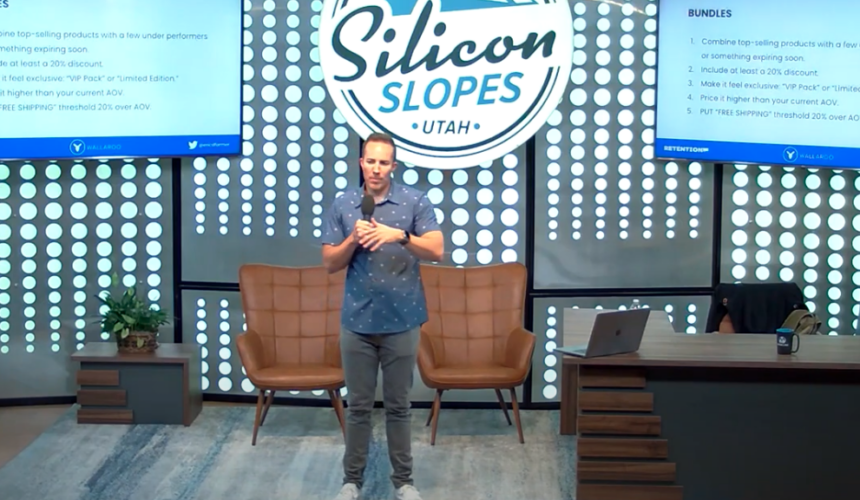We all know there are a number of benefits to pay-per-click advertising: your business is easily found, you connect with people around the web, you get all kinds of insights and metrics, you reach customers on all devices, etc. But what about local businesses? Does PPC do anything for them? Is it as important to run a PPC campaign if your business is smaller and only caters to local customers?
The answer is yes.
So here’s the kicker:
There is another wonderful thing about pay-per-click advertising, and that is the ability to localize. But what are some real, honest, good reasons to incorporate a PPC campaign even if you are a smaller, local business?
- It doesn’t cost an arm and a leg – With PPC campaigns you control how much is spent, which makes it a far easier marketing plan to budget in.
- Target a specific audience – A PPC campaign allows you to choose definitive search terms, helping you target more likely customers, like those that live in the surrounding area.
- Increase your click-through rate – Most people actually prefer to work with local service companies or buy products from local businesses; it makes things easier for them. Oftentimes they will search for terms like “best lawyer in detroit, michigan” or “detroit puppies for sale.” If a PPC campaign is set up to target localized search terms like these, it helps increase the click-through rate.
Why is the term “Click-through Rate” bolded numerous times?
Turns out, this is an important term to be aware of. Click-through rate is a ratio of how many times an ad is clicked on over the number of impressions the ad has made. This rate is essential because we can learn so much from it:
- Determine if the ad message is strong/clear enough
- Does your ad make sense? Have you done some testing to ensure that it sends the message you intend?
- Does it stand out in a crowd? Is the ad strong, enticing, and able to pop among the numerous advertisements people are ambushed by daily across the internet?
- Target the right audience with keywords
- If the keywords are targeted specifically enough, those searching will find your ad as an answer to their question. This increases the likelihood that they will click through to the landing page.
- If, however, the keywords haven’t been targeted well, the ad may get misplaced in irrelevant searches, and customers are less likely to click through if it is not an answer they were looking for.
- Recognize how many offline conversions are happening
- If the click-through rate is high but the conversion rates are low, it may not be such a bad thing after all. Especially in the case of a local business; the conversions may instead be happening offline, in store.
- Decreases your cost per click
- The way a PPC auction works is a combination of cost per click maximum bid amount and a quality score. The maximum bid amount is the amount a company says they are willing to pay per click, while a quality score is determined by Google based on the following criteria:
- Ad Relevancy – Is your ad relevant to the subject, keywords, and location?
- Click-Through Rate – As more people click on your ad, the more important your ad appears to Google.
- Landing Page – Do you have one? Is it relevant? How high is the bounce rate?
- If the quality score of an ad is high, the cost per click is lowered. This is because Google assumes that if your quality score is high, then you as a company are offering a valuable user experience, which is Google’s end goal.
- The way a PPC auction works is a combination of cost per click maximum bid amount and a quality score. The maximum bid amount is the amount a company says they are willing to pay per click, while a quality score is determined by Google based on the following criteria:

- And, of course, the no-brainer: the more clicks, the more conversions.
- With a properly set up campaign (targeted keywords, relevant and compelling ad copy, relevant and helpful landing page), the more clicks you get, the higher your conversion rate should be. And let’s face it, when conversions mean money in the pocket, who doesn’t love them!
It’s important…so how do we increase it? (click-through rates, that is)
- Write more significant/emotional ads that pertain to the audience
- In this case, think locally; which kinds of problems can you solve for your specified local customer? Then consider making these changes:
- Write strong, eye-catching headlines
- Use questions
- Use strong verbs (examples: improve, desire, recognize, catch, etc.)
- Make it actionable or commanding
- Include a call to action
- Give them an opportunity to solve their problem
- Let them know what opportunities they have if they click through to the landing page
- Invite them to learn more about….how much they could save, how well it works, testimonials of others, etc.
- Write strong, eye-catching headlines
- In this case, think locally; which kinds of problems can you solve for your specified local customer? Then consider making these changes:
- Put yourself in the customer’s shoes, what do you want?
- They say you don’t know someone unless you’ve walked a mile in their shoes; so strap on those emotional high heels, rambunctious cowboy boots, passionate sneakers, and take the perspective of a potential customer. How do you feel? What are some concerns in your life? What are some problems you’d like to have solved?
- Now as the business owner you know what to offer; after having taken the point of view of your customers, you can appeal to the perfect customer.
- Use keywords in the headline or ad copy somewhere
- The searcher used that keyword in their inquiry for a reason. Make your ad more relevant and eye-catching by using that keyword in the headline or ad copy.





